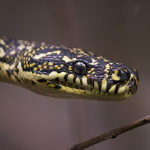Rabbits
Rabbits are excellent pets. They are becoming more popular as pets world wide because they make excellent pets for flats and units as they are very clean, quiet, low demand and most are naturally toilet trained.
Rabbits have constantly growing teeth so they need plenty of hard things to chew on like pieces of safe, untreated, unpainted wood, carrots, chew treats and hard pellets. One of the draw backs of having a house rabbit is that their need to chew can sometimes be your furniture or even electrical cords. Their teeth should be checked at least annually by a veterinarian. Some rabbits especially dwarfs have poorly aligned teeth. These teeth don’t wear down properly and if left unchecked can grow to occlude the rabbits mouth. If no one notices they can starve to death.
Pet rabbits are very vulnerable to the same viruses that kill wild rabbits, notably myxomatosis and calicivirus. Calicivirus is easy to prevent by getting your rabbit vaccinated annually. A Myxomatois vaccine does exist but it is illegal to use it in Australia. Instead to protect your bunny from Myxomatosis you need to protect them against the fleas and mozzies that spread it. Use a long acting flea control (not all are safe for rabbits so ask your vet first) and ideally use mozzie proof netting over their hutches or windows.
Rabbits suffer badly during the build up and the wet in the top end. I see a lot of sick and dying rabbits at this time. Their immune system is poor at this time of year so all sorts of problems crop up. Keep your rabbit inside if possible or keep them at least only on well drained ground with plenty of shelter from the rain. Your rabbit will also make a better pet if desexed – both male and female – they become less aggressive, are more settled and live longer. It will also stop them from breeding like, well, rabbits.


